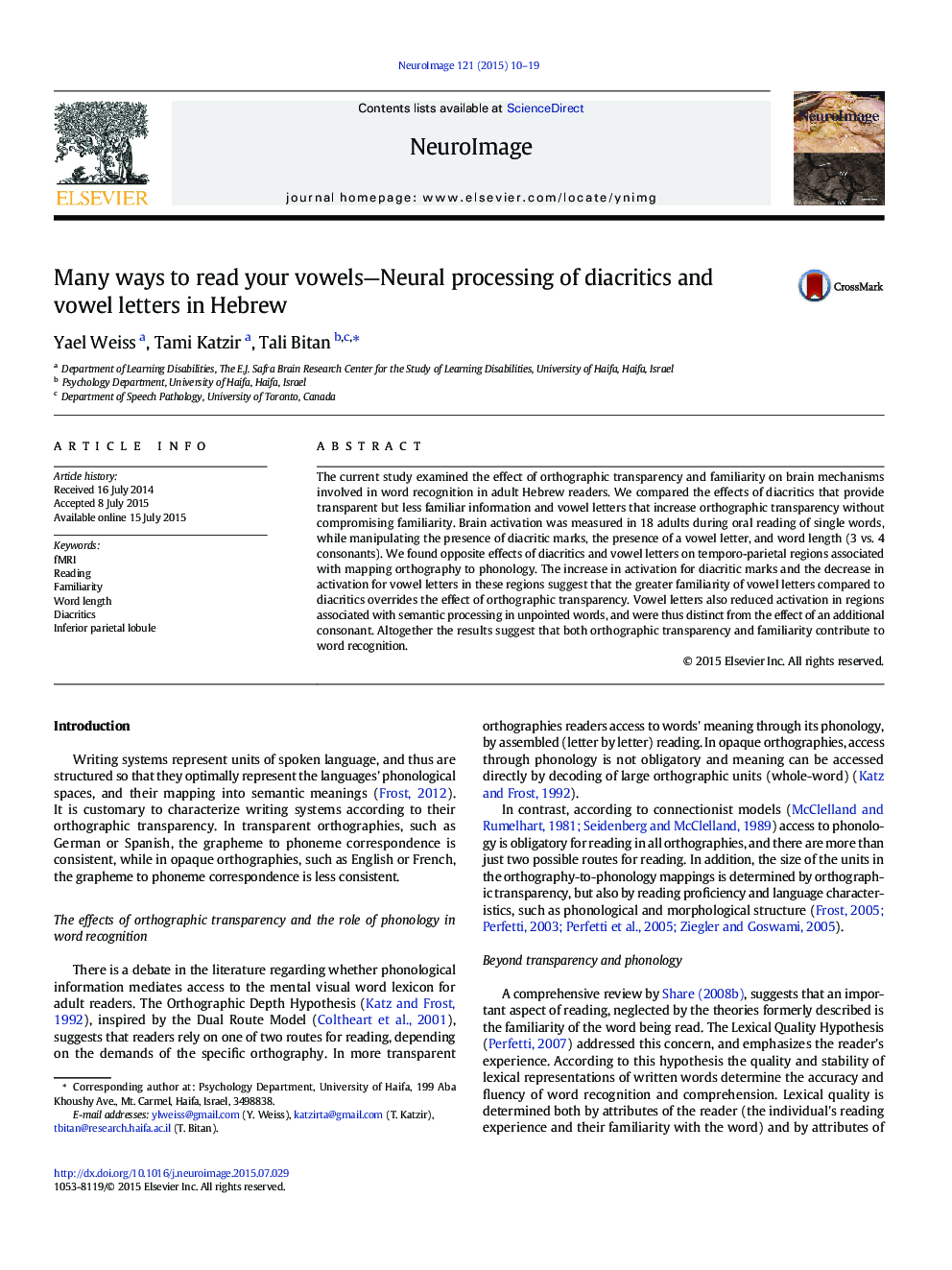| Article ID | Journal | Published Year | Pages | File Type |
|---|---|---|---|---|
| 6024759 | NeuroImage | 2015 | 10 Pages |
Abstract
The current study examined the effect of orthographic transparency and familiarity on brain mechanisms involved in word recognition in adult Hebrew readers. We compared the effects of diacritics that provide transparent but less familiar information and vowel letters that increase orthographic transparency without compromising familiarity. Brain activation was measured in 18 adults during oral reading of single words, while manipulating the presence of diacritic marks, the presence of a vowel letter, and word length (3 vs. 4 consonants). We found opposite effects of diacritics and vowel letters on temporo-parietal regions associated with mapping orthography to phonology. The increase in activation for diacritic marks and the decrease in activation for vowel letters in these regions suggest that the greater familiarity of vowel letters compared to diacritics overrides the effect of orthographic transparency. Vowel letters also reduced activation in regions associated with semantic processing in unpointed words, and were thus distinct from the effect of an additional consonant. Altogether the results suggest that both orthographic transparency and familiarity contribute to word recognition.
Related Topics
Life Sciences
Neuroscience
Cognitive Neuroscience
Authors
Yael Weiss, Tami Katzir, Tali Bitan,
